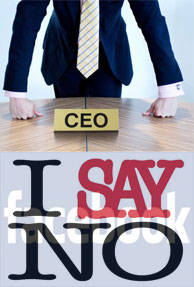Why should CEOs give top priority to outsourcing ?
By | Wednesday, 21 April 2010, 16:28 IST

Bangalore: The hard-pressed CEOs are devoting more attention to outsourcing, because a considerable amount of most large organizations' cost base is already with outsourcing service providers and this amount is rising at a rapid pace. At the same time, getting large-scale outsourcing wrong can seriously damage the business. From now on, outsourcing is part of any future strategy. From past experience, the announcement of a large-scale outsourcing deal regularly has a positive effect on share price that can last between three and ten months. The opposite can occur if the market perceives outsourcing to be an inadequate measure, given the scale of difficulties involved, where the deal seems to be flawed or quickly contrived or where the CEO and organizations ultimately fail to deliver the financial results stated or implied in the initial announcement.
The evidence from LSE Outsourcing Unit research shows clearly that outsourcing -- properly planned, resourced and managed -- can deliver significant competitive advantage to companies and organizations in all sectors. But only when the CEO plays a key role -- taking central strategic decisions, creating vital capabilities, putting in place integrated management processes and applying effective monitoring and evaluating mechanisms.
The Outsourcing Unit's research points to five main reasons why outsourcing must now move up the CEO agenda. Let us look at these issues in more detail.
Reason 1: Outsourcing impacts on market value: Share price is a fundamental barometer of corporate performance. Histories have identified a significant correlation between firms outsourcing their IT infrastructure or back offices and a positive stock market response. Investors consider movement toward outsourcing as an important and generally favorable variable when assessing a firm's worth. The danger for the CEO is being swayed by short-term share price concerns and signing a large, long-term deal in order to try to shift the share price substantially upwards or perhaps to buy time rather than focusing on the fundamental business logic of the outsourcing deal. Long-term outsourcing contracts signed for short-term reasons invariably bring about major disappointments for CEOs and their organizations.
Reason 2: Outsourcing is pervasive and growing: Outsourcing makes up a substantial and rapidly increasing proportion of expenditure in corporations and government agencies alike. Organizations are choosing to outsource more and more and for a variety of reasons: to get to market faster, to cut internal costs, or to leverage he increasing capabilities of external services providers. CEOs need to put such large spending on to a much more strategic footing.
Reason 3: Outsourcing can damage corporate health: The outsourcing highway is under attack with casualties. This can run into massive problems, suffering from slow organizational learning, and working in a reactive rather than an anticipatory mode.
21st century example can be: In 2000, UK retailer Sainsbury?s signed a 7-year $3.25 billion deal with Accenture to outsource its IT operations. By late 2004, the deal had been renegotiated twice, and Sainsbury's had announced a 2004/5 write-off of $ 254 million of IT assets, and a further $218 million of automated depot and supply chain IT. The way forward was to reduce costs and simplify systems.
In 2004, JP Morgan and Chase scrapped its $5 billion contract with IBM two years into a 7-year deal, concluding that much of the work could be better handled in-house. 5
The CEO's must have an involvement because in outsourcing, strategic risk mitigation is fundamental. Furthermore, pursuing an operational, cost-reducing outsourcing strategy can drive costs down but often at the expense of other expected benefits. Strategic and even operational inflexibilities can result. as the examples above show, strategic decisions to merge, acquire, or enter new markets can incur substantial unforeseen damage, delays and costs, if existing outsourcing arrangements need to be refocused.
Reason 4: Outsourcing can play a positive, strategic role: However the leading organizations utilize forms of outsourcing and partnering in order to penetrate new markets quickly Like, operate in new regions, achieve strategic agility etc. All of these demand close CEO attention. If these moves are fully to pay off, the CEO needs to shift from a tactical or arm?s length approach to outsourcing, to a much more strategic and personally involved one.
Reason 5: CEOs alone possess the crucial bargaining power: Bargaining power is one of the elements in outsourcing which the CEO alone can bring. Organizationally and strategically the CEO is the ultimate pivot of bargaining power. A key CEO role, therefore, is to ensure that their organization's bargaining power is sustained -- both through their personal influence with the supplier's powerbrokers and by putting in place the strategies, processes and people needed to keep the relationship with the supplier sharply competitive and productively leveraged.